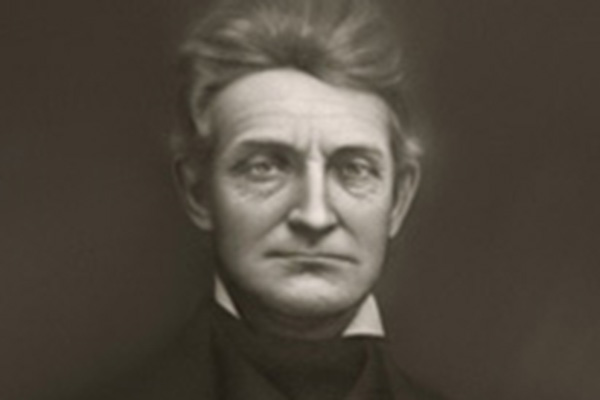Preservation of the Abolitionist Movement Fund

Although most people study history in school, it was at the dinner table that longtime Akron native Marna Becker started gathering her vast knowledge of U.S. and world history.
Becker grew up listening to her father talk about the stories he learned in college while studying history – particularly the Peloponnesian War. And although Becker went on to study science in college, she held on to her father's affinity for history, becoming attached to one particular historical figure: John Brown.
It was Becker's experience of being separated from her family at a young age that led her to develop a special connection to the issue of slavery and John Brown's passion for the abolitionist movement.
As a young child, Becker was often sick and was placed in an orphanage on South Arlington Street after her mother passed away during childbirth and her dad could not care for her. She had the company of her sister at the orphanage, but after her sister went to live with their great-aunt, Becker was alone.
"I came early to understand slavery in the same way John Brown did," Becker said. "It separated families."
Becker began learning as much as she could about the life and work of John Brown, who lived in several Summit County locations during his life, including Hudson, Akron and Richfield. He was a passionate abolitionist whose controversial actions are often credited with sparking the Civil War. Most notably, in 1859, Brown led a raid on the federal arsenal at Harpers Ferry, Va. His plan was to rally and protect runaway slaves, guiding them to freedom in Canada. Above all, Brown's goal was to make slavery unprofitable.
However, Brown was caught at the time of the raid and was later executed for treason. This made him an immediate martyr in the eyes of Northern abolitionists and pushed the nation closer to an inevitable civil war. "John Brown made America face what it had gone to great lengths to avoid for two-and-a-half centuries: slavery," Becker said.
Many people, including Becker, still consider Brown to be one of the nation's – and Akron's – greatest heroes. "John Brown is our local hero," Becker said. "He is a national and international hero. He was consistent in his dedication that the color of a person's skin was only that, and nothing else. He risked his own life repeatedly for that principle and other admirable principles right up to the end."
In Akron, Brown is remembered by visitors to the John Brown House. The house is operated by the Summit County Historical Society and is located at the intersection of Diagonal and Copley roads. A second tribute to Brown, a century-old sandstone pillar, is hidden away on a piece of property owned by the Akron Zoo. The monument is at the top of a steep incline and has been the target of graffiti artists and vandals in past years.
This destruction, along with her passion for John Brown and the abolitionist movement, is what inspired Becker to find her own way of celebrating Brown's legacy: by setting up a special-interest fund at Akron Community Foundation. Thanks to other interested donors, Becker established the Preservation of the Abolitionist Movement Fund in 2007 with $15,000. The fund aims to help restore and potentially relocate the monument, as well as to educate people about the importance of freedom and human rights.
"We need to let the world know that we care and there have always been people who want each person to be free," Becker said. "We need to continue to fight against slavery and support those groups that (fight) it first-hand." Becker said that not only is slavery alive and well in Africa, even the United States has not completely escaped its history of slavery. Although some pockets of the nation still discreetly continue traditional notions of slavery, she said it is much more common to see examples of slavery in the form of sex trafficking.
Ultimately, Becker said she hopes her fund will inspire people to be aware of the presence of slavery and act vigilantly to stop it, just as John Brown did 150 years ago. "There is more slavery in the world today than ever before," she said. "Many people thought that slavery would fade away, but it didn't happen. We have to do something about it."
Becker turned to Akron Community Foundation for that exact purpose, and the rest, as they say, is history.
